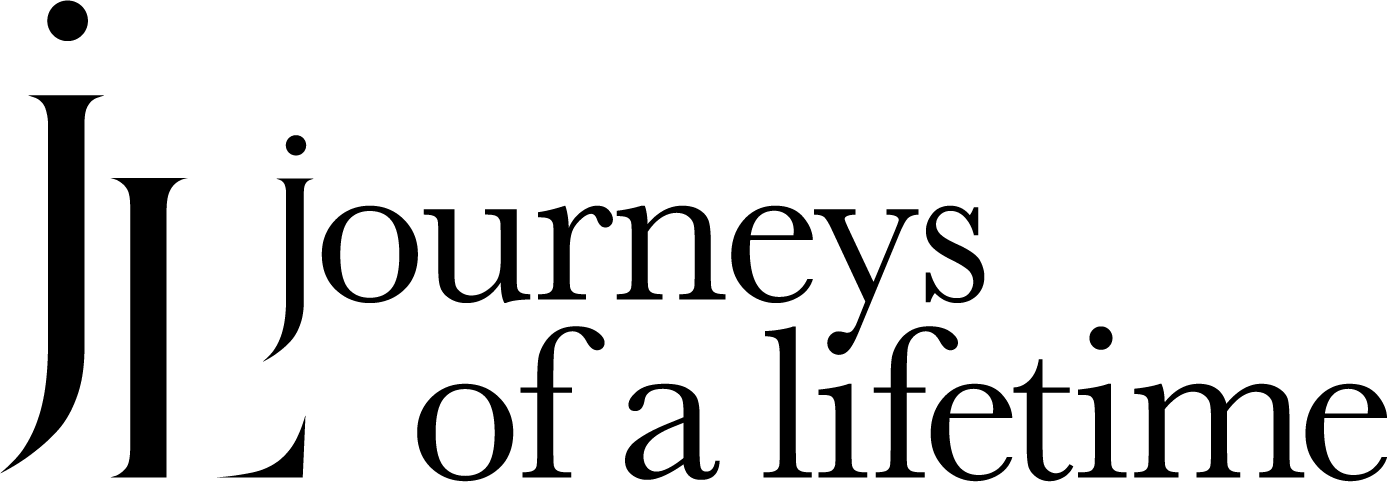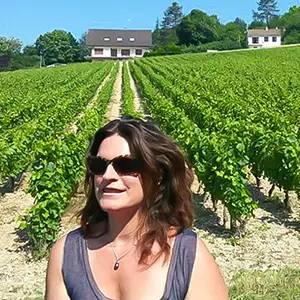Introduction: The Scent of the Earth
The truffle is not just food. It is a paradox: wild yet cultivated, secretive yet celebrated, elusive yet fought over in markets, laboratories, and forest duels across centuries. It begins in darkness, deep in limestone or clay beneath oak and poplar, and ends shaved in paper-thin petals on porcelain plates under Michelin-star lighting. To follow it across Europe is to move through misty woods, medieval squares, high-tech fairs, candlelit chapels, and festival squares bursting with music, dogs, and wine.
This is a journey through the great truffle capitals of the continent; from the global fame of Alba, Périgord, Provence, and Teruel to the rising terroirs of Istria, Slovenia, and Hungary. Each has its own season, its own signature aroma, its own rituals. Together, they form a map of taste, scent, and culture unlike any other in the culinary world.
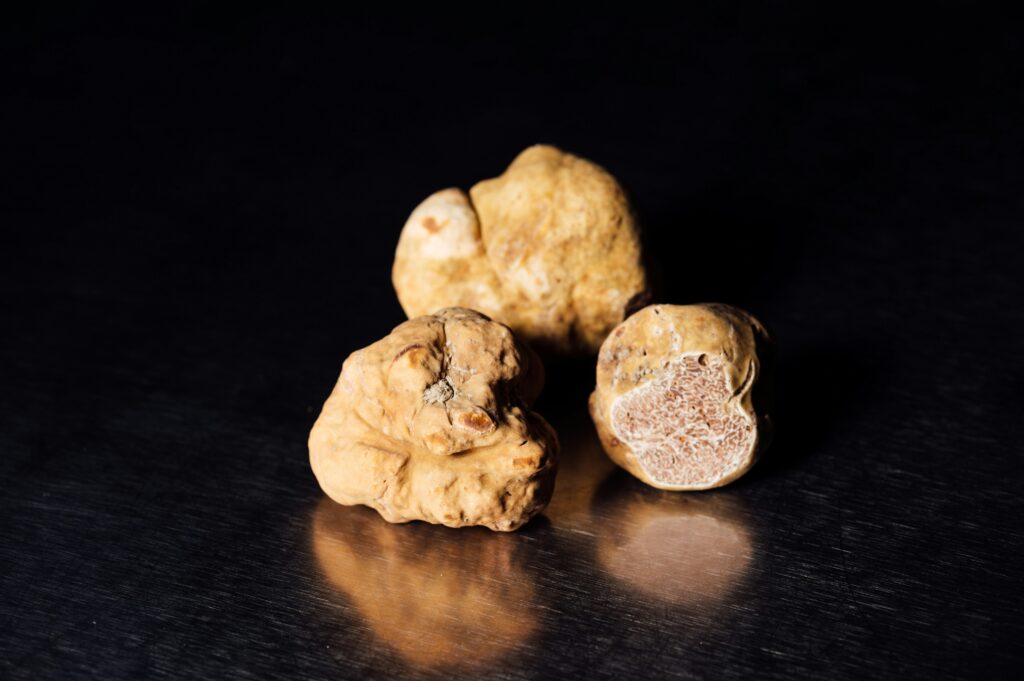
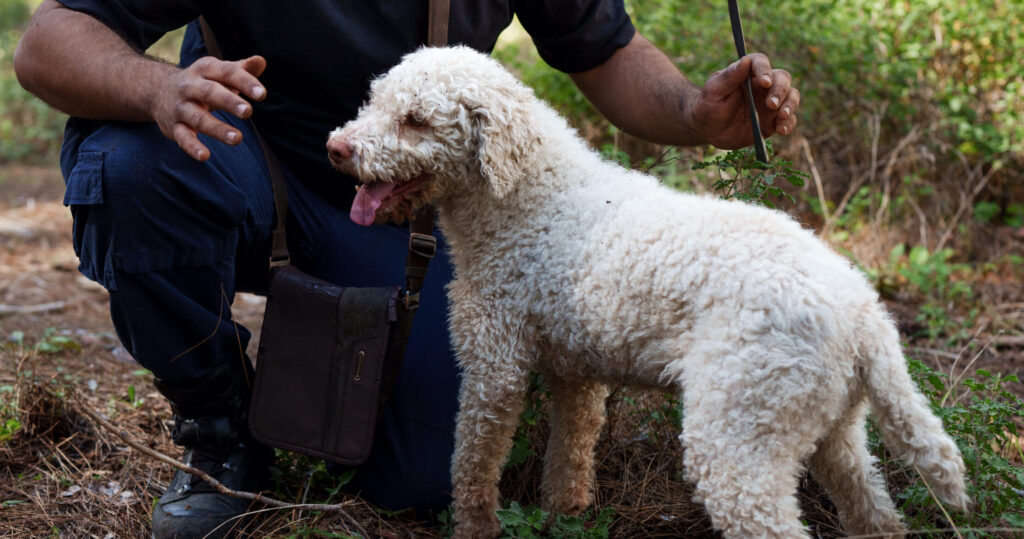
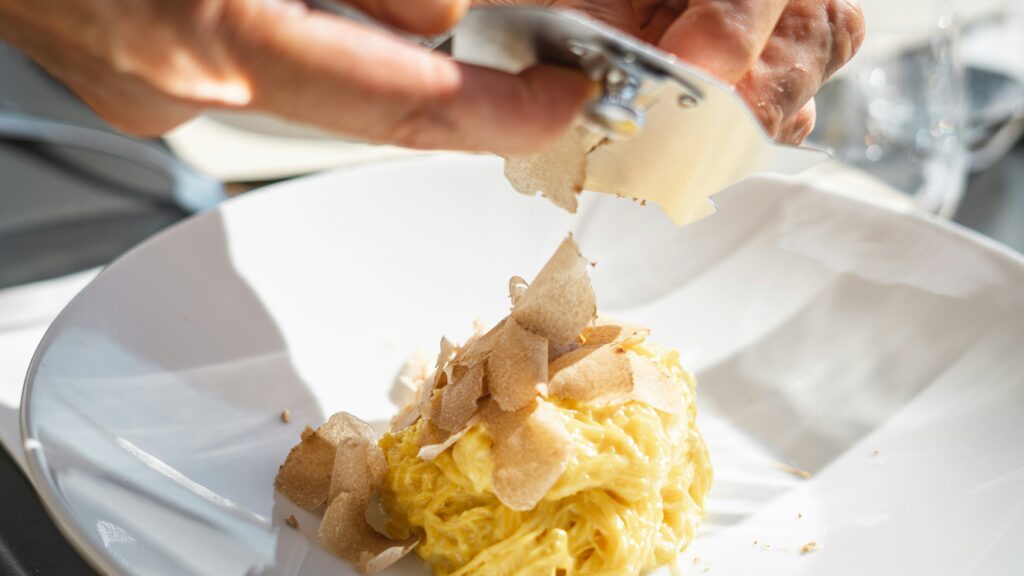
Alba, Italy — White Truffle’s Autumnal Requiem
October 11 – December 8, 2025
By early October, fog begins to roll across the Langhe hills, pooling in vineyard folds before seeping into Alba’s narrow streets. The first white truffles arrive with it. Their aroma hits you before you see them: a sharp top note of raw garlic opens the lungs, sliding into aged cheese and faint shallot, finally sinking into the smell of damp autumn soil after rain.
From October 11 to December 8, 2025, Alba hosts the 95th International Alba White Truffle Fair, the world’s most famous celebration of Tuber magnatum. Each weekend, the World Truffle Market fills the Cortile della Maddalena with stalls where foragers, brokers, and chefs negotiate over tubers the size of fists or walnuts. Nearby, in the MUDET sensory analysis hall, experts evaluate each truffle’s perfume, persistence, and purity with the precision of wine sommeliers.
But Alba doesn’t just trade in truffles, it performs them. Medieval parades weave through streets, donkey races recall folkloric traditions, and Barolo tastings in castle courtyards pair truffles with Nebbiolo’s autumn tannins. Cooking shows, lectures, and even truffle-themed wellness sessions crowd the calendar, the whole town surrendering to aroma.
The highest expression comes at Piazza Duomo, Chef Enrico Crippa’s three-Michelin-starred restaurant overlooking the central square. His seasonal tasting menu treats the white truffle not as garnish but as axis: tajarin pasta under a snowfall of shaved truffle; soft egg custard breathing warmth that carries the perfume upward; vegetables carved into architectural compositions designed to let aroma linger in the air before the palate. Paired with Barbaresco or local Arneis, each dish holds silence before applause.
Alba in truffle season is more than festival. It is autumn itself distilled—mist, leaf, earth, and luxury condensed into eight perfect weekends of taste and scent.
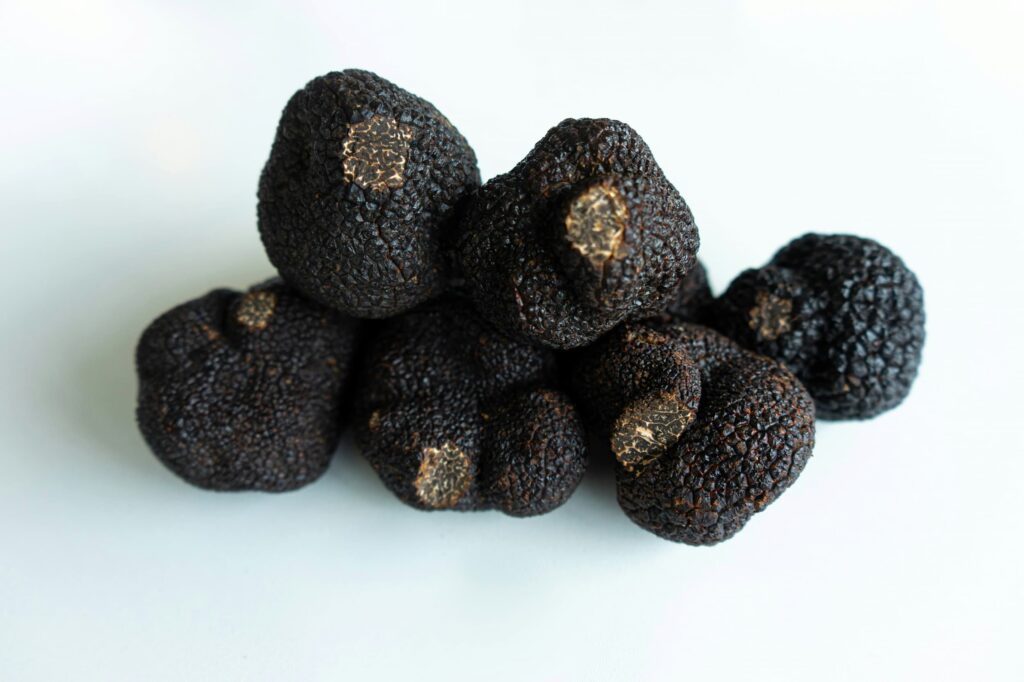
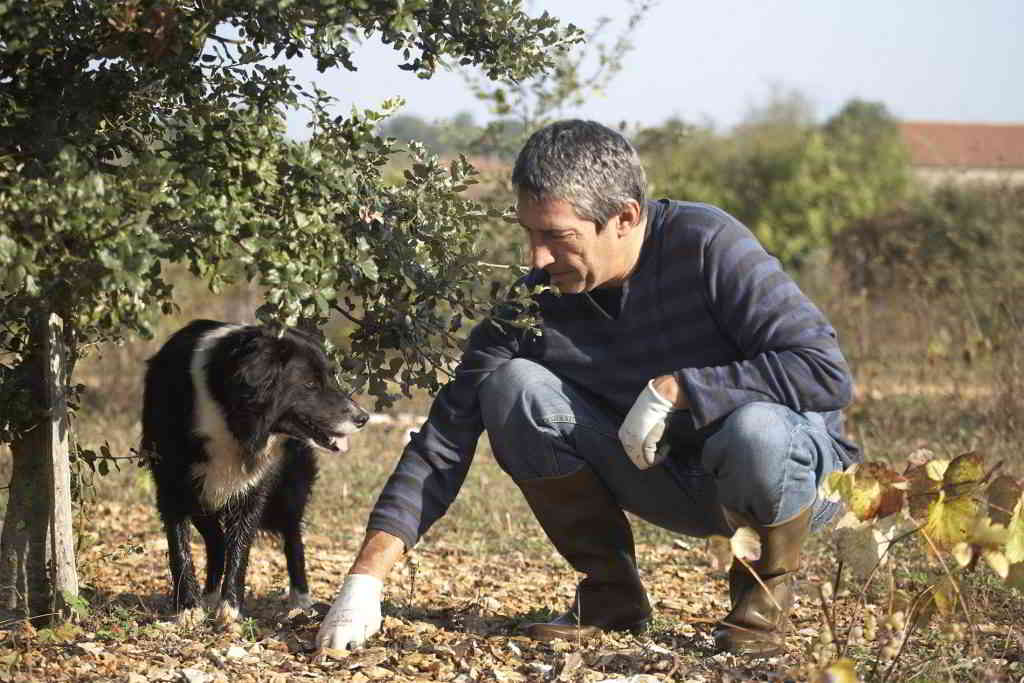
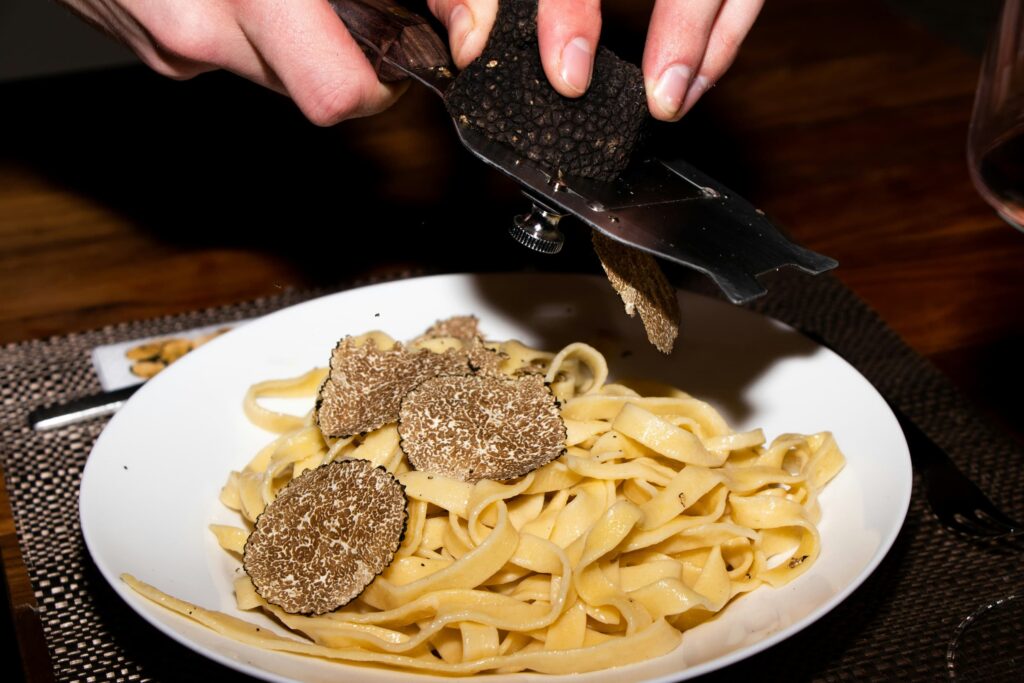
Périgord Noir, France — Earth’s Velvet Celebration
January 18–19, 2025
If Alba belongs to autumn’s fog, Périgord belongs to winter’s hearth. In the medieval heart of Sarlat-la-Canéda, the Fête de la Truffe unfolds on *January 18–19, 2025, honoring Tuber melanosporum, the black truffle known as the “black diamond.”
Morning streets fill with its perfume: humus after rain, roasted hazelnut, a faint radish sharpness, and the musky depth of forest nights. Market stalls line the squares with straw-filled baskets where truffles wait beside goat cheeses, walnut oils, foie gras, and Armagnac.
Visitors watch cavage demonstrations as trained dogs zigzag through the square, freezing mid-step when they locate a buried tuber for their handler to unearth. Tasting workshops teach how to judge maturity by aroma strength, firmness, and veining.
Evenings belong to the Prestige Dinners, multi-course galas where Michelin-starred chefs compose entire menus around the black truffle’s earthy perfume. At Le Vieux Logis in Trémolat, Chef Vincent Arnould serves soft-poached eggs in truffle butter, potato mille-feuille layered with quail yolk and shaved truffle, and risottos that taste like winter soil after frost. Wines from Bergerac and Cahors echo the depth with velvet tannins.
In Périgord, truffle is not decoration. It is center, substance, velvet heart of the French winter table.
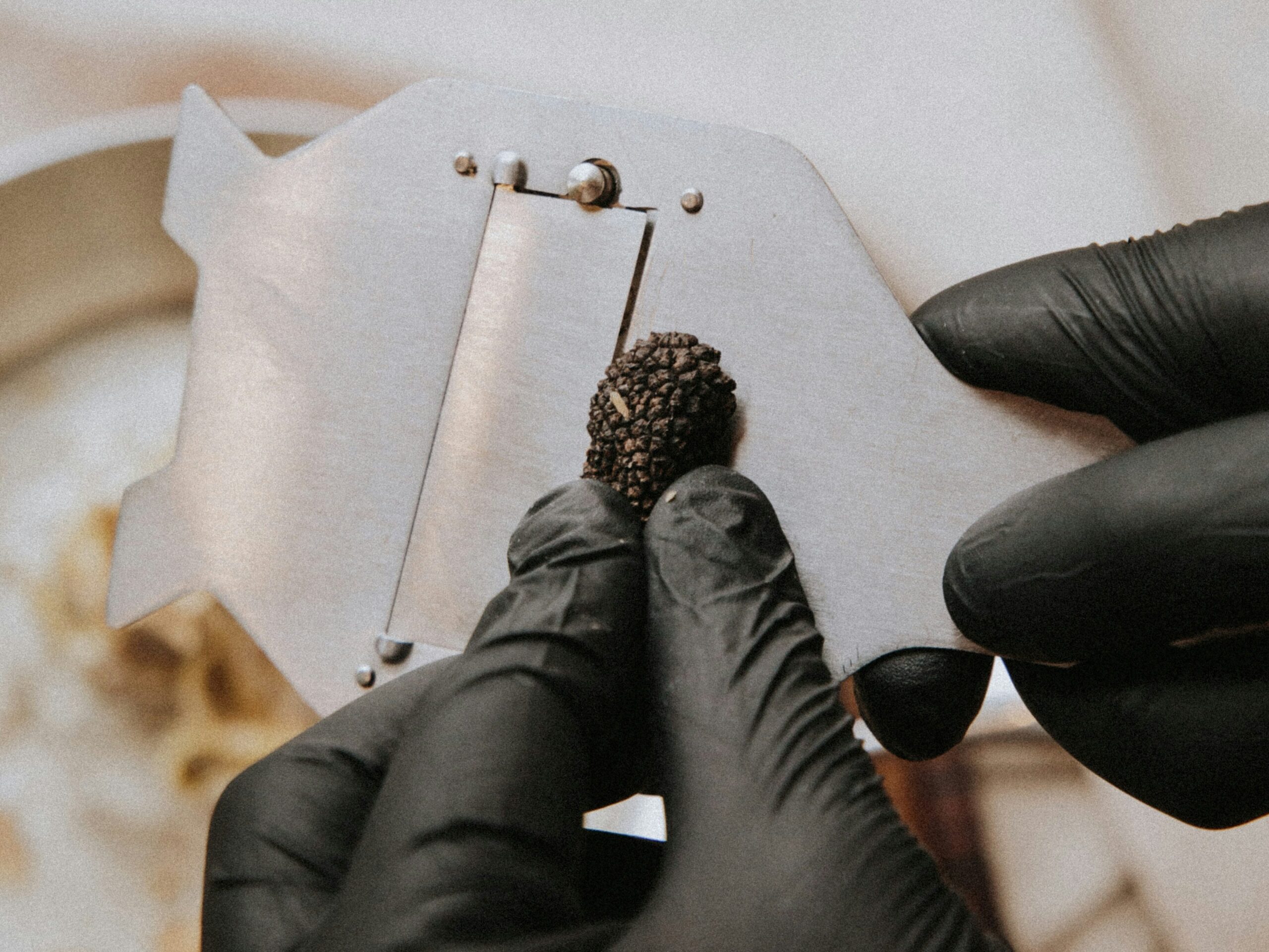
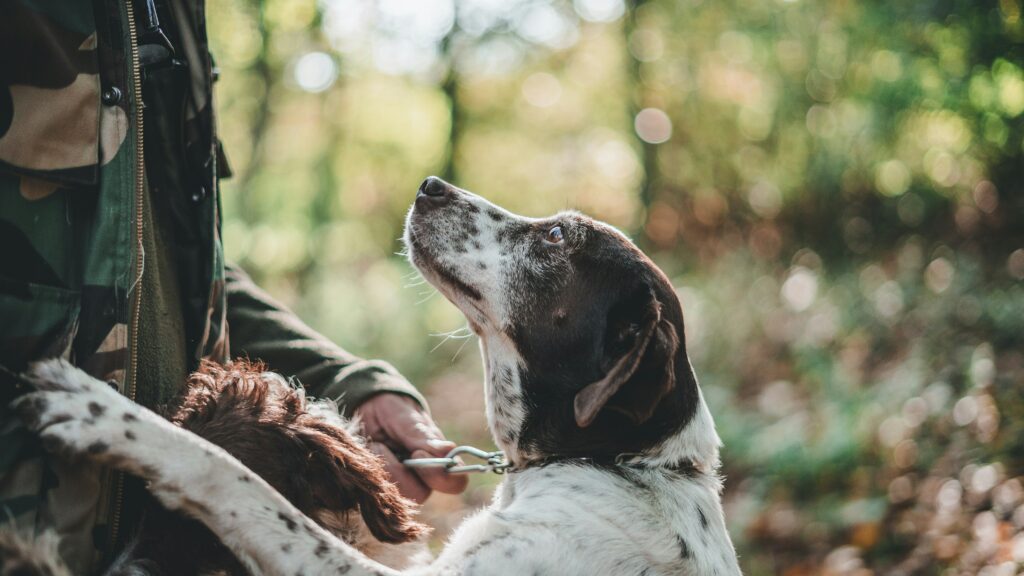
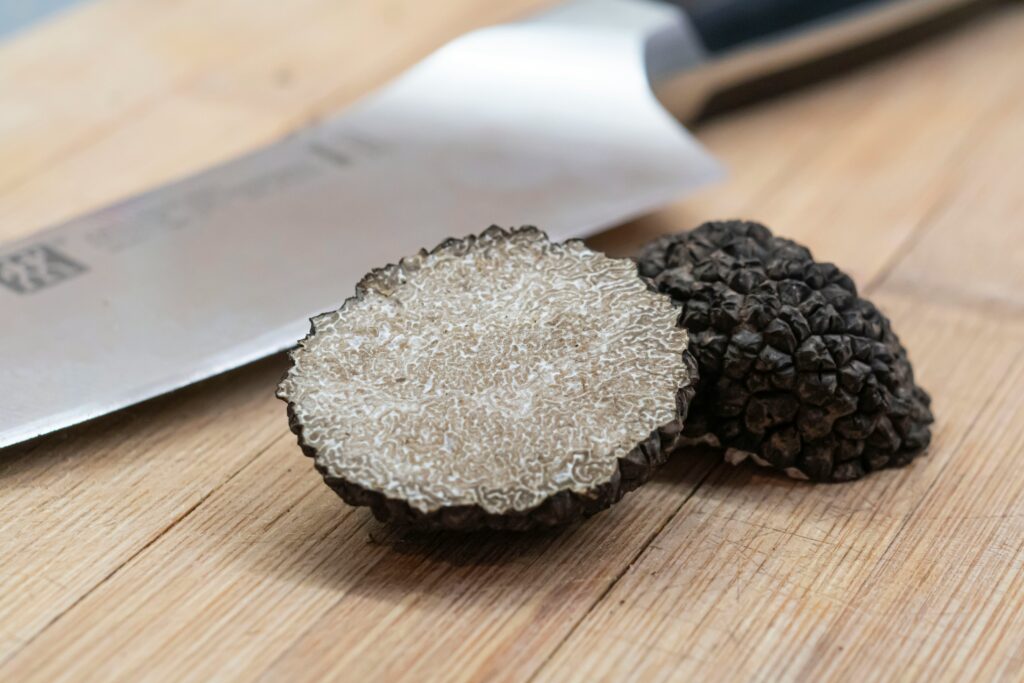
Richerenches, Provence — The Sacred Truffle Offering
January 19, 2025
Provence gives the black truffle not just commerce, but liturgy. On Sunday, January 19, 2025, the village of Richerenches celebrates the Messe aux Truffes, a tradition begun in 1952 where parishioners offer truffles instead of coins during the offertory at Église Saint-Denis.
As organ music fills the Romanesque arches, the fragrance of Tuber melanosporum rises heavier than incense: musky, nutty, faintly garlicky, rooted in cold soil and oak leaf. When the priest lifts the gilded ciborium, its contents are black truffles destined for auction rather than communion wafers.
After Mass, the Confrérie du Diamant Noir, clad in ceremonial robes, leads a procession to the village square. Truffles are weighed on brass scales and sold to fund church restoration. Crowds gather around steaming cauldrons of truffled omelets, bread, and wine while Provençal music mingles with woodsmoke.
Nearby, O’Rabasse, Michelin-recognized and housed in a former Templar commandery, serves a more refined homage: lamb roasted with truffle jus, root vegetables under truffle shavings, even truffle-infused desserts pairing chocolate’s bitterness with the tuber’s deep musk. In Richerenches, truffle leaves the forest floor to ascend altar, auction, and table in a single winter day where faith and flavor meet. You can read more about French Truffle Seasons here.
Teruel, Spain — The Engineered Black Diamond
Late November / Early December 2025
If Alba is tradition and Périgord romance, Teruel is science. High in Aragón, the province produces over half the world’s black truffles thanks to decades of research, irrigation, and reforestation. Its capital is Sarrión, home to FITRUF—the Feria Internacional de la Trufa—held in late November / early December 2025 (dates pending).
Here, truffle growing leaves secrecy behind for laboratories, cooperatives, and nurseries producing mycorrhizal oak seedlings by the tens of thousands. The fair hosts technical talks on soil pH, climate adaptation, and aroma chemistry alongside cooking demos, truffle-dog competitions, and bustling markets where exporters buy by the kilo.
Amid this modernity, flavor still rules. At El Batán in Tramacastilla, Teruel’s Michelin-starred pride, truffles meet slow-cooked egg yolks, braised artichokes, and local lamb in dishes balancing rural soul and contemporary precision. Teruel proves truffle need not rely on myth alone. Here, knowledge safeguards aroma against drought, disease, and time itself.
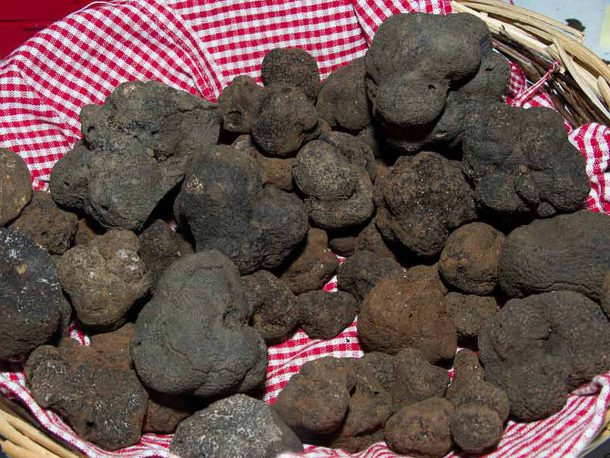
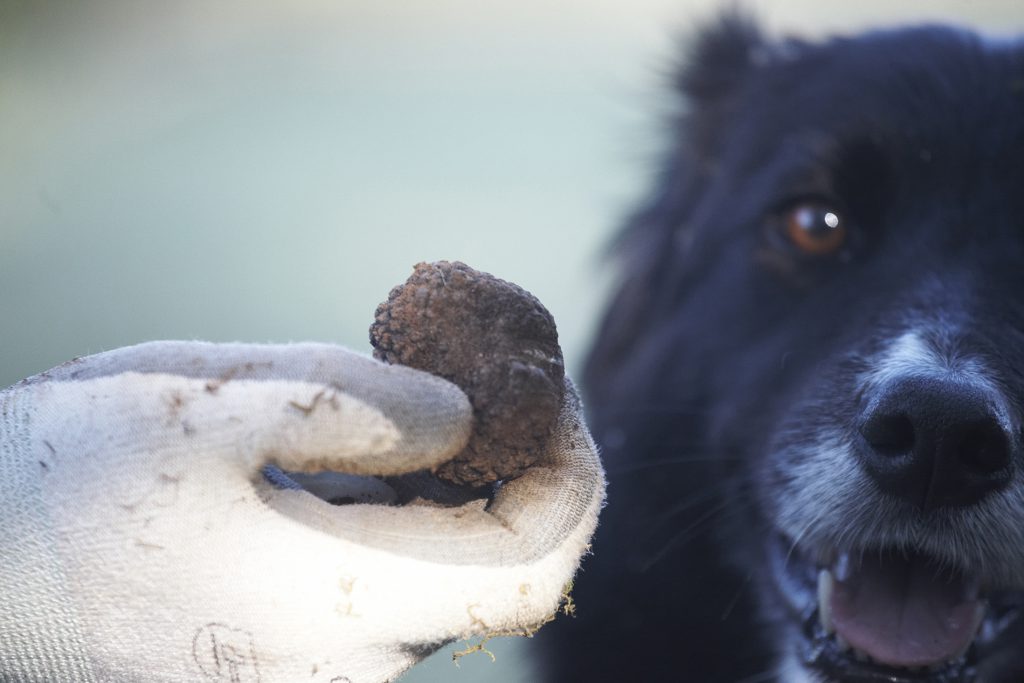
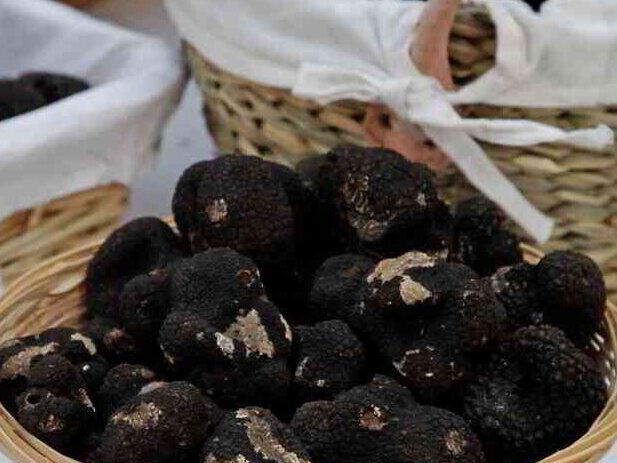
Unusual Capitals — Istria, Slovenia & Hungary (Autumn 2025)
Beyond the famous quadrivium lies a constellation of emerging terroirs weaving truffle into new identities.
Istria, Croatia — Zigante Truffle Days (October 4 – November 2, 2025)
Each weekend from October 4 to November 2, 2025, the hilltop village of Livade hosts Zigante Truffle Days, born after the world’s largest white truffle—1.31 kg—was found nearby in 1999. Dawn hunts in the Motovun Forest yield white truffles with softer, honeyed aromas than Alba’s and black truffles rich with olive wood warmth.
By noon, long tables in the village square overflow with fuži pasta, truffled cheeses, local honey, and Malvasia wine. Cooking shows, folklore dances, and truffle auctions turn Istria into a feast of scent, music, and forest legend under the Adriatic sun.
Slovenia — Karst’s Quiet Renaissance
Across the border, Slovenia’s Karst Plateau shelters limestone soils where truffles hide among oak roots and wild herbs. Only legalized in the 1990s, truffle hunting here remains intimate: small groups follow local guides and dogs through rocky clearings before sitting to meals of handmade fuži pasta with truffle shavings and crisp Malvasia wines in restored farmhouses.
Slovenia offers no grand fairs or Michelin temples—only authenticity, geology, and new traditions still writing themselves in the scent of leaf mold and woodsmoke.
Hungary — Summer Truffle Hospitality
Further east, Hungary’s Gerecse Hills and Jászság plains yield summer truffles (Tuber aestivum) with gentler, nuttier aromas than their winter cousins. Here, family farms invite visitors for orchard hunts followed by lunches of truffled potatoes, cheeses, and acacia honey under open skies.
It is truffle as rural welcome rather than luxury ritual, a reminder that aroma also thrives in simplicity.
Epilogue — The Scented Map of Europe
To trace Europe’s truffle capitals is to follow a calendar of aroma across landscapes and centuries. Alba gives autumn mist and white truffle glory; Périgord offers winter velvet and medieval charm; Richerenches turns flavor into faith; Teruel weds science to soil; *Istria, **Slovenia, and *Hungary carry the story onward into forests, farmhouses, and festivals still young enough to invent themselves.
From foggy October dawns to candlelit January altars, from Michelin-starred dining rooms to village squares under music and smoke, the truffle remains Europe’s most elusive luxury—half earth, half air, always alive with scent, secrecy, and celebration.
The Five Terroirs: A Comparative Analysis
| Feature | Alba, Italy | Teruel, Spain | Istria, Croatia | Karst, Slovenia | Gerecse Hills, Hungary |
| Primary Truffle Species | White Truffle (Tuber magnatum Pico) | Black Truffle (Tuber melanosporum) | White Truffle (Tuber magnatum Pico), Black Truffles | White, Black, & Summer Truffles | Summer Truffle (Tuber aestivum) |
| Dominant Flavor Profile | Intense, complex; notes of garlic, aged cheese, honey | Deep, earthy; notes of cocoa, damp earth, forest musk | Pungent but nuanced; notes of hazelnut, moss, aged cheese | Subtle, earthy balance; less intense, more lingering | Delicate, nutty, slightly sweet; notes of hazelnut, mushroom |
| Key Terroir | Sedimentary marl & clay soils; symbiotic with oak, poplar, linden | High-altitude, calcareous limestone soil (pH 7.5-8.5); extreme continental climate | Unique microclimate of Mirna River Valley; loamy clay soil | Limestone & dolomite plateau (Karst geology); rocky, porous soil | Fertile chernozem & gleysol soils; continental climate |
| Hunting/Cultivation | Wild foraging; highly traditional, secretive, often nocturnal | Scientific cultivation in plantations (truffières); mycorrhizal inoculation | Wild foraging in dense, untamed forests | Wild foraging; newly legalized, small-scale, artisanal | Cultivation in orchards; agritourism-focused |
| Market Dynamics | €3,000–€8,000+/kg; extreme exclusivity, high-stakes auctions, black market | €800–€1,500/kg; global leader in volume, PGI protection, consistent supply | High but variable; rising global profile, tourism-driven | Boutique pricing; emerging market, high quality-to-price ratio | €150–€300/kg; accessible, seasonal, growing reputation |
| Signature Pairing | Fresh tajarin pasta or soft-scrambled eggs | Migas aragonesas or simple fried eggs | Handmade fuži pasta with creamy truffle sauce | Fuži pasta with fresh truffle shavings | Infused in honey, paired with cheese; shaved on modern dishes |
| Defining Narrative | Myth & Luxury: An ancient prize transformed into a global luxury brand, now struggling with the dark side of its own value. | Science & Scale: A wild fungus demystified and industrialized, creating a global empire through agricultural precision. | Legend & Adventure: A modern identity forged by a single giant discovery and marketed through the thrill of the wild hunt. | Forbidden & Rediscovered: A quiet culture emerging from the shadows of a decades-long ban, built on authenticity and unique geology. | Accessible & Experiential: An old tradition reborn as a modern agritourism venture, offering a gentler, more accessible entry into the truffle world. |

